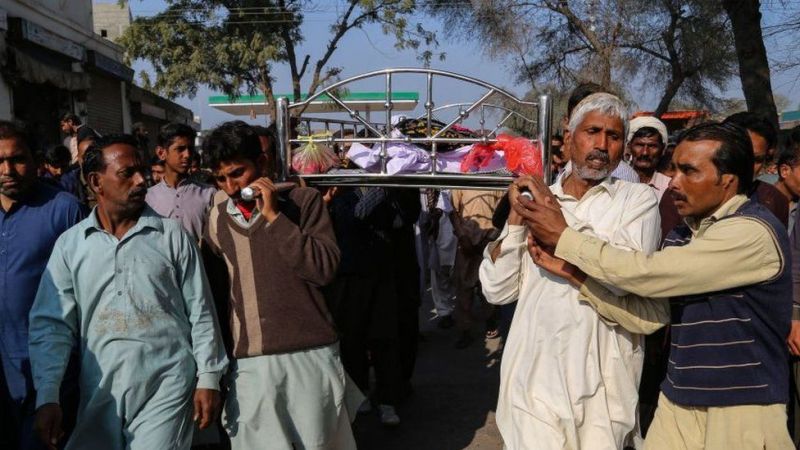- Dhaka air unhealthy for sensitive groups Saturday morning |
- North Korea conducts a test on 'super-large warhead': KCNA |
- 'Bombing' hits Iraq military base: security sources |
- G7 countries for promoting Free, Open Indo-Pacific |
- Create conditions for Rohingya Repatriation: G7 countries |
Pak man accused of blasphemy killed by mob in Khanewal

A mob has killed a man for allegedly burning pages of the Koran in central Pakistan, police say, in the latest case of blasphemy-related violence in the country.
Police say more than 80 people have been arrested in connection with the killing on Saturday in the district of Khanewal in Punjab province.
Reports said the man was in police custody before a crowd snatched him.
His body was handed over to his family and a funeral held on Sunday.
Pakistan Prime Minister Imran Khan said the case would be "dealt with the full severity of the law" and asked for a report on police officers accused of failing their duty to save the man.
His government, he said, had "zero tolerance for anyone taking the law into their own hands".
Police official Munawar Hussain said officers arrived to find the man, reportedly in his 40s, unconscious and tied to a tree. Khanewal is located 275km (170 miles) south-west of Lahore.
"The villagers armed with batons, axes and iron rods killed him and hanged his body from a tree," Mr Hussain told Reuters news agency.
Munawar Gujjar, chief of the police station in Tulamba, where the incident happened, added to the AP news agency the victim had been "mentally unstable for the last 15 years".
The killing comes just over two months after a Sri Lankan factory manager was beaten to death and set ablaze by a mob over blasphemy in Sialkot city, also in Punjab province.
Pakistan's blasphemy laws carry a potential death sentence for anyone who insults Islam, but critics say they have been used to persecute minority faiths and unfairly target minorities.
The laws have been used to settle personal scores in cases which can appear to have little or nothing to do with religion, according to human rights groups, reports BBC News.

